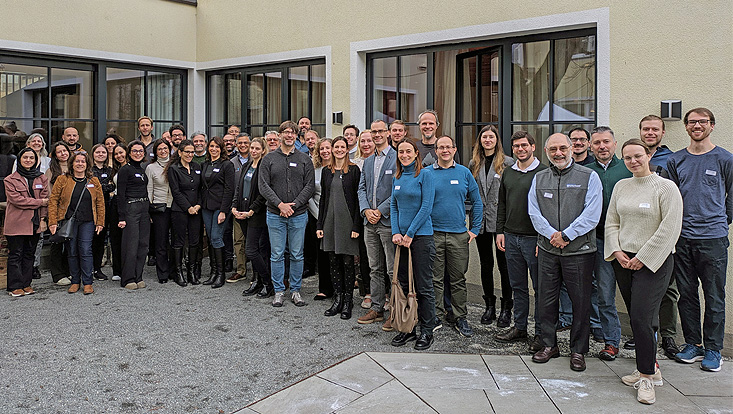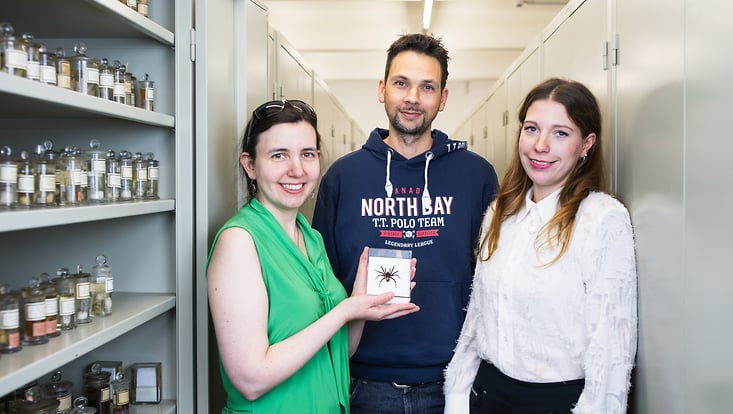Using AIDigital Twins Should Improve Treatment of Type 2 Diabetes
25 January 2024, by Heiko Fuchs

Photo: dAIbetes consortium
A research team in the Department of Informatics at Universität Hamburg was successful in the Horizont Europa research program and has been coordinating an international consortium to develop federated health infrastructure since the beginning of 2024. The dAIbetes project focuses on the use of digital twins as a tool for prognosis and personalized disease management coupled with data privacy.
The dAIbetes cooperation partners from 7 countries will consolidate the data from roughly 800,000 type 2 diabetes patients, distributed across 4 international cohorts, in a special, federated database network and use it to train digital twins for the purposes of prognosis. Using a special software platform, these models will be validated in real clinical practice.
Type 2 diabetes affects one in ten adults worldwide
“Our primary goal is a federated health data platform with the first internationally trained digital twins to facilitate the personalized prognosis of treatment results for type 2 diabetes. One in 10 adults around the world has type 2 diabetes, which costs roughly €893 billion per year,” says bioinformatics expert Prof. Dr. Jan Baumbach, Department of Informatics at Unvirsität Hamburg. He is also overseeing the overall coordination of the international project.
The digital twins that will be developed are digital images of patients that can be used for medical prognoses very effectively. Creating these kinds of models is complex because large quantities of data from different sources are required from the dAIbetes cooperation partners. Data regulations in different countries also pose a huge challenge.
Focus on protecting sensitive patient data
To this end, the project is relying on federated learning, a data-protection friendly method to train AI models using a technique that depends on multiple independent sessions, each using their own dataset. The data remain behind a firewall and are not uploaded to data clouds. This approach ensures the protection of sensitive patient data while facilitating the effective use of Big Data.
“Ultimately, the findings will contribute to remedying current problems with the guidelines for the expected treatment results for individual patients. Moreover, our federated health data platform will provide the blueprints for the next generation of patient registers,” says Baumbach.
Multidisciplinary cooperation
The dAIbetes project links 13 international project partners and will run for 5 years. It is being coordinated by Universität Hamburg and has a budget of €5.9 million, of which more than €2 million are earmarked for Hamburg’s subproject.
dAIbetes brings together a multidisciplinary consortium, with expertise in AI, software development, data protection, cyber security, diabetes, and diabetes treatment. The goal of cooperation is to develop a concept for overcoming the contradiction between data privacy and Big Data in international diabetes research and beyond, as well as to expand the boundaries of medical research, to improve treatment results, and to further develop precision medicine.
The dAIbetes project has received funding from the European Union’s Horizon 2020 research and innovation program through the Grant Agreement no. 101136305. The information in this press release has been provided exclusively by the author(s) and does not necessarily reflect the information provided by the European Union.


